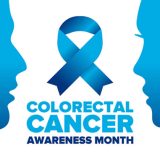Chronic Fatigue Syndrome (CFS) is an extremely common, yet under-treated illness in today’s society. Because fatigue can be confused with laziness or depression, people who are severely tired may not always seek a physician’s help. However, according to the U.S. Department of Health and Human Services, the earlier a person with CFS receives medical treatment – the greater the likelihood the illness will resolve. Thus, if exhaustion is part of your daily routine, make sure you are aware of CFS, its symptoms and when to seek medical help.
Definition
A historically vague diagnosis, an international panel of CFS research experts convened in 1994 to draft a definition of Chronic Fatigue Syndrome. In order to receive a diagnosis of CFS, both criteria must be satisfied:
- Have severe chronic fatigue of six months or longer duration with other known medical conditions excluded by clinical diagnosis.
- Concurrently have four or more of the following symptoms: substantial impairment in short-term memory or concentration; sore throat; tender lymph nodes; muscle pain; multi-joint pain without swelling or redness; headaches of a new type, pattern or severity; un-refreshing sleep; and post-exertional malaise lasting more than 24 hours. The symptoms must have persisted or recurred during six or more consecutive months of illness and must not have predated the fatigue.
Prevalence
While one to four million Americans are assumed to suffer with Chronic Fatigue Syndrome, only about half have consulted a physician for their illness. Although there is no single conclusive diagnostic test confirming CFS, this illness strikes more people in the United States than multiple sclerosis, lupus, lung cancer or ovarian cancer. CFS occurs four times more frequently in women than in men, although people of either gender can develop the disease.
Cause
Of all chronic illnesses, CFS is one of the most mysterious without a clear cause. Chronic fatigue syndrome may occur after an infection, such as a cold or flu. The onset can be during or shortly after a time of great stress, or chronic fatigue syndrome may come on gradually without a clear starting point or obvious cause. In addition, several proposed causes include:
- Depression
- Iron deficiency anemia
- Low blood sugar
- History of allergies or immune system dysfunction
- Viral infection (such as Epstein-Barr virus or human herpes virus 6)
- Changes in certain hormone levels
- Mild, chronic low blood pressure
However, no serious underlying infection or disease is proved to specifically cause Chronic Fatigue Syndrome.
Seeking Help
Because fatigue can be a symptom of many different kinds of illnesses, it is important to see your doctor if burdened by persistent or excessive fatigue. Whether indicative of CFS or not, severe fatigue could be a symptom of an underlying medical problem. Individuals reporting extreme exhaustion to their physician often get help increasing their energy levels in a variety of ways.
According to the U.S. Department of Health and Human Services, approximately 40 percent of those who report symptoms of CFS have a serious, treatable, previously unrecognized medical or psychiatric condition such as:
- Diabetes
- Thyroid disease
- Substance abuse
Once the underlying condition is recognized and treated, fatigue and other CFS-related symptoms dissipate.
If Chronic Fatigue Syndrome is diagnosed, healthcare practitioners report that the earlier a person receives medical treatment – the greater the likelihood the illness will resolve. Treatment for chronic fatigue syndrome focuses on a combination of approaches to relieve signs and symptoms. In general, physicians aim to relieve symptoms of CFS by combining a few or more of the following:
- Gradual but steady exercise, often with the help of a physical therapist. Research has proved that gradually increasing exercise can improve the symptoms of CFS.
- Cognitive behavior therapy may be combined with a graduated exercise program.
- Where applicable, pharmaceutical treatment of depression, pain, allergies, low blood pressure or nervous system abnormalities.
- One of several experimental medications including methylphenidate or D-ribose.
- As demonstrated in several clinical trials, acupuncture may reduce the anxiety and fatigue associated with CFS.
Although the chance of Chronic Fatigue Syndrome resolving is improved with early intervention, many affected individuals fail to seek medical help. Thus, extreme fatigue is not a symptom to ignore. Those meeting the CFS criteria owe it to themselves to discuss their symptoms with a doctor – because that is the only way to rule out a previously unrecognized condition, diagnose Chronic Fatigue Syndrome and begin appropriate treatment.




